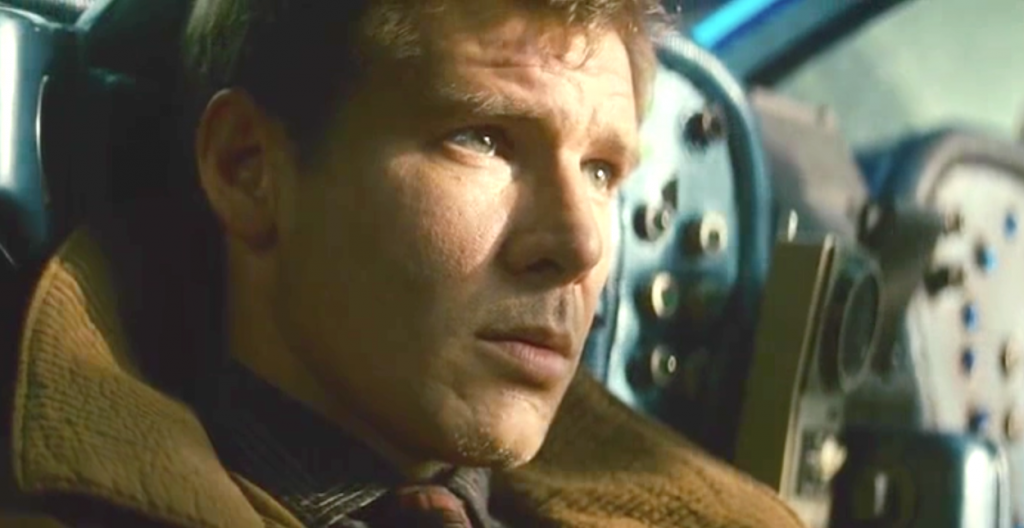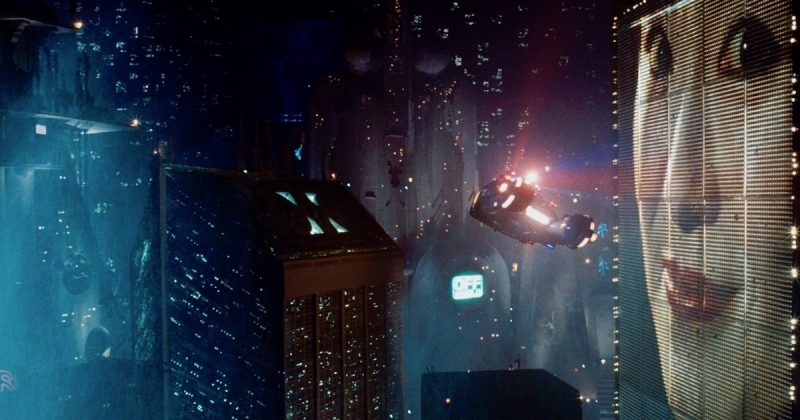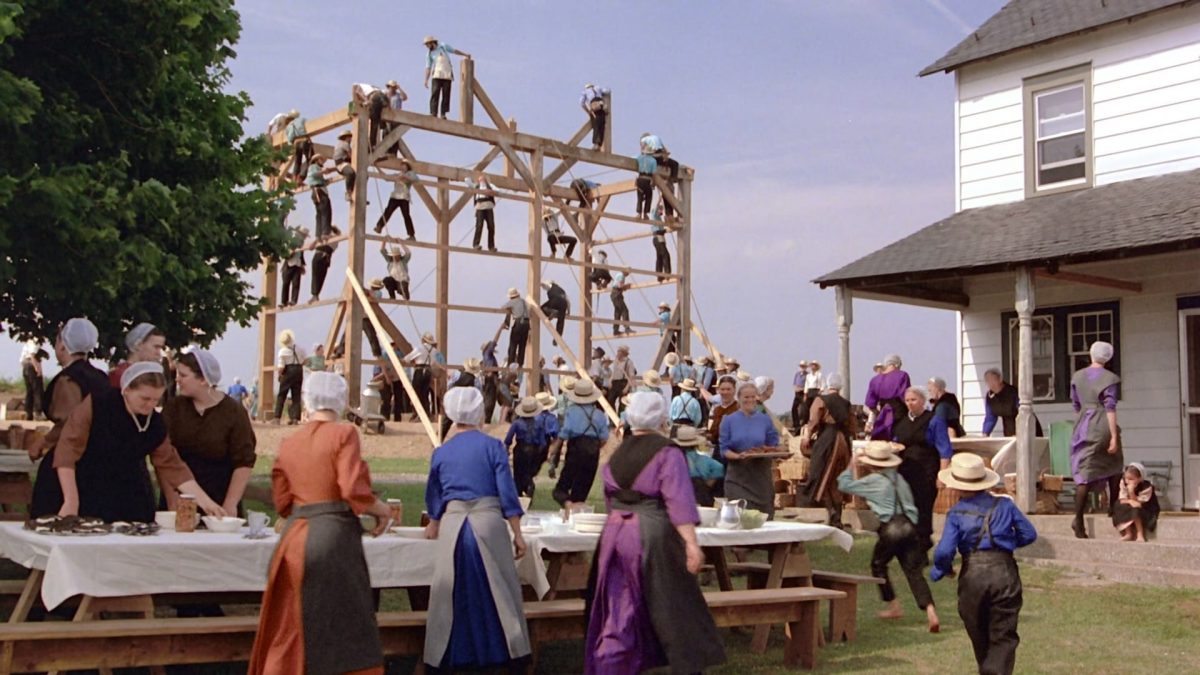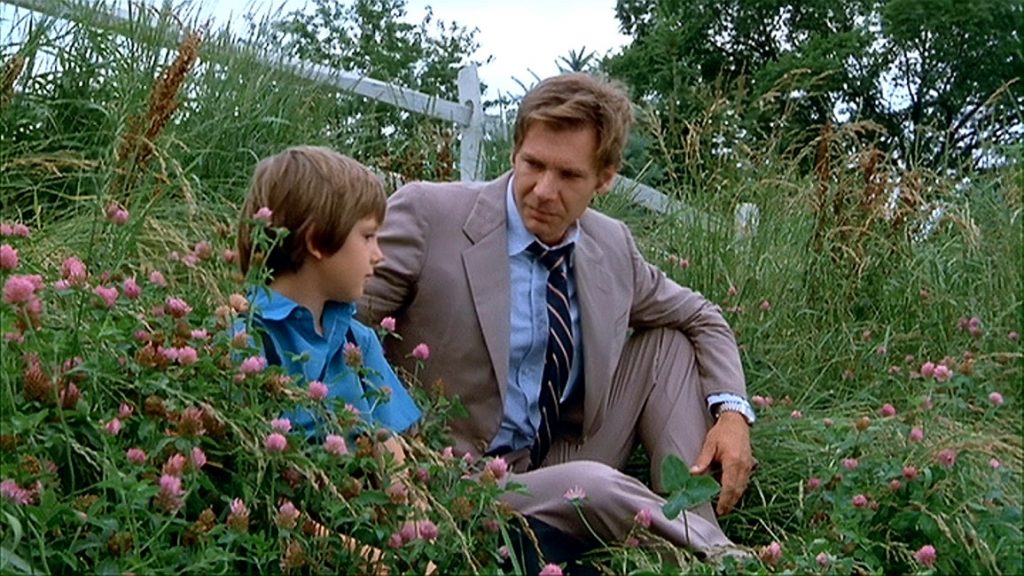Director – Ridley Scott – 1993 (1982) – US – 15 – 116 mins 29 secs
*****
DO FILM EXECS DREAM OF ELECTRIC UNICORNS?
One of the two main motivating forces behind the current Tetsuo II: Body Hammer (Shinya Tsukamoto, 1992) – the other was Videodrome, (David Cronenberg, 1983) – Blade Runner turns up in the cinema here some ten years after its original release in a Director’s Cut.
According to the press handouts, this isn’t just the original cut prior to Warner Bros.’ encouraging director Ridley Scott to remove the downbeat ending and insert a film noir voice over to explain what was going on – the film has additionally been re-edited by the director to make it work for a nineties audience.

Thus, the redundant voice over has gone and the original down ending is back – to make more sense of the story. There’s also a new and crucial sequence in which Harrison Ford as Deckard (an ex-cop, or ‘blade runner’, who forcibly retires renegade androids known as ‘replicants’) dreams of a unicorn which looks suspiciously like an out-take from the director’s later big budget fairytale flop Legend (1985). The relationship between Deckard and the state-of-the-art replicant Rachel (Sean Young) (“she doesn’t even know,” he comments bitterly) is expanded too.… Read the rest


